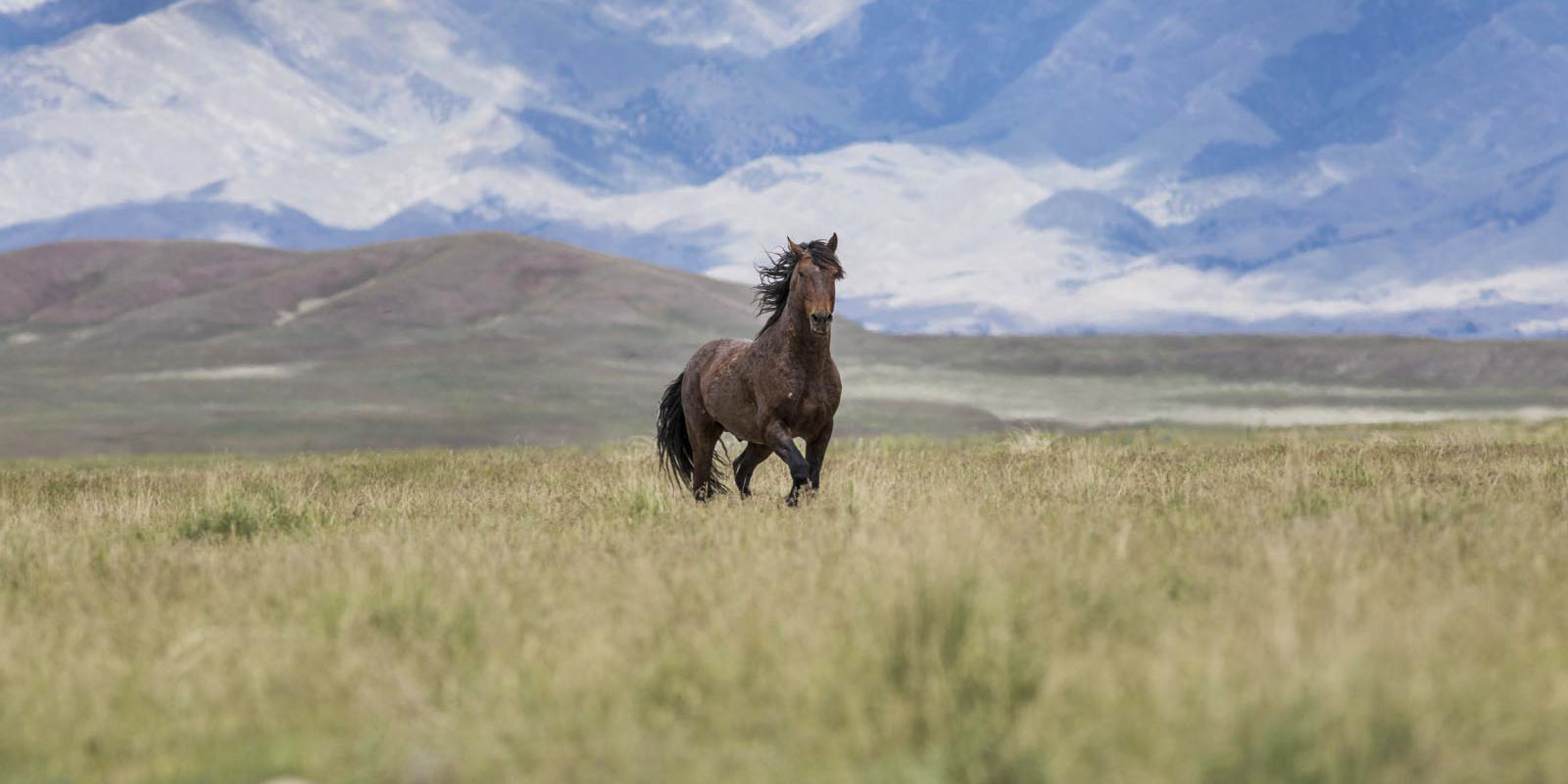MORONGO BASIN — Two appropriations bills awaiting decision in Congress may have costly consequences for wild horses.
A bill funding the Department of the Interior would allow the Bureau of Land Management to euthanize free-roaming mustangs and burros, while an agriculture funding bill proposes to reopen horse slaughterhouses in the United States.
The Assembly’s Appropriations Committee approved the first bill, funding the Department of the Interior and the Environmental Protection Agency in fiscal year 2018, July 18. An amendment made by Congressman Chris Stewart, of Utah, lifts a ban on the destruction on wild horses as long as they are not killed for commercial reasons.
The wild horse and burro population has been described by the Bureau of Land Management as unsustainable; there are an estimated 72,674 burros and wild horses as of March 1, which is 47,000 over the level the federal agency calculates would be appropriate for its land.
Stewart and his supporters argue that with too high a population for the land available, the wild horses and burros are suffering.
Suzanne Roy from the American Wild Horse Campaign argues that the bills could be detrimental to the wild horse and burro population and potentially bring their numbers beneath 1971 levels, when the United States passed the Wild Free Roaming Horses and Burros Act to protect them.
“It would be a disaster for wild horses and our efforts to protect them. It would give BLM authority to kill tens of thousands of these majestic wild horses,” she said in a phone interview this week.
The tool primarily used to cope with unsustainable populations of wild horses in the past was adoption. However, a decrease in demand for adoptions is leaving a growing number of horses homeless.
In addition to the Interior appropriations bill, the Agriculture appropriations bill opens the possibility of bringing the horse slaughtering business back to the United States.
Slaughterhouses that kill horses are currently not allowed in the country, because the federal government does not fund inspectors to approve them. The current appropriations bill would change that, allowing slaughterhouses to operate in the United States once again.
Due to the differences in the bills before the House Appropriations Committee, which voted to remove the anti-slaughter language, and the Senate Appropriations Committee, which voted to keep horse slaughterhouses closed, the bill will go to negotiations before the fiscal year.
The final vote on both bills will take place in September.
Following the decision closely is horse rescuer Melinda Allen with Joey’s Home Animal Rescue in Yucca Mesa. Allen has seen firsthand “kill buyers” at auctions she attends to find horses in need of rescue. Kill buyers, she said, buy horses at auctions and take the animals to Mexico to be sold to slaughterhouses. If the House bill passes and slaughtering returns to the U.S., it could make the process easier for buyers.
Allen sees the danger to wild horses as an issue not of overpopulation but of reducing lands.
“Public lands belong to the public and certainly belong to the mustangs for many generations,” she said.
While Allen doesn’t work predominately with mustangs, she knows well about taking care of neglected horses.
She works with organizations like Forgotten Horse Rescue and acquires rescues from auctions, owner surrenders and fosters. Though a small nonprofit in the Hi-Desert, Joey’s Home Rescue works to make sure horses are not being led to slaughterhouses. Last Christmas, Allen shared about what she called the “Christmas Miracle,” where rescue organizations were able to buy all of the horses a kill buyer was attempting to bid on at an auction.
While horse rescues around the country wait on the final rulings regarding slaughterhouses and euthanasia, Allen said rescuers will continue to do what they can to keep horses from being sold to kill buyers and continue advocating for the wild horse: “Where would our country be if it hadn’t been for the wild horses?”


